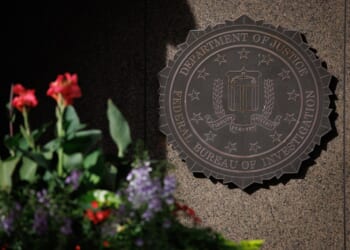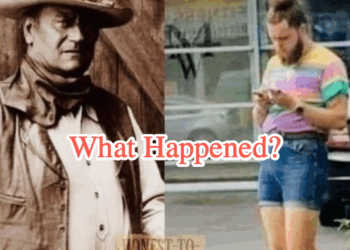Note: The following interview was published in Poland, in the journal POLONIA CHRISTIANA, in March 2016—over nine years ago. It was conducted by Dr. Michal Krupa of Dr. Boyd D. Cathey. Below is a translation. In March 2016 Donald Trump was set to wrap up the Republican primary season with additional wins, sealing his nomination. With that in mind the interview ranged over the hopes—and fears—that I felt back then. Some of those goals were achieved, but many were not, as we now know. We are now in President Trump’s second term, so it may be useful to look back at what many of us believed and prayed could happen nine years ago. It seems evident that we—our nation—has much further to go if we are to re-capture, to re-establish the original constitutional liberties and faith that once enabled the Framers to create our nation.
—————————————————————————–
TRANSLATION (in English):
1. You reacted strongly to Pope Francis’s recent critical words, which were clearly directed at Donald Trump. Can you elaborate why you believe the pope’s words were a mistake?
Yes, the problem here appears to reflect a kind of historical and theological amnesia among many post-Vatican II Catholic leaders. Historically, and certainly from a theological perspective grounded in both Natural Law and traditional Catholic teaching, the position that a country, a nation, has the right to control its borders and to regulate who enters, is both legitimate and consistent. Indeed, in many respects such a traditional view is based on the principle that a constituted state is modeled, if you will, on the microcosm of the family. The family is the basic, God-given building block in and of a society. The state reflects that organic and natural composition on a national level. Just as the family has the natural right to regulate who its members are and who becomes a member of it, so, too, does a state. There is absolutely nothing anti-Catholic about this position, and there are numerous popes and theologians who have ratified that position.
Pope Francis has a way of throwing out controversial statements carelessly and informally in the presence of eager news reporters. In too many cases, those statements, while certainly informal and off-the-cuff, do not truly reflect the traditional positions of the church. In the case of Donald Trump and his positions on illegal immigration, or, for that matter, on Muslims coming to the United States, his views in no way contradict Catholic teaching from over the centuries. Indeed, the fact that the Vatican Press Office felt the need to clarify Francis’s initial statement only confirmed that Trump was correct in what he has said, and that, indeed, what he said is consistent with the historical positions of the Church.
2. There are many critics of Donald Trump on both the establishment left and right and in the mainstream conservative movement. How does a traditional Catholic and American patriot, like yourself, explain his support for the GOP frontrunner? What issues has he touched upon that appeal to you?
The major questions for me are, first, the issue of illegal immigration, its effects on my country, and what should be done to address this problem; and, second, the absolute necessity to challenge the increasingly managerial and authoritarian duopoly—that is, the control by political elites over the American nation. Historically, the United States was established as an aristocratic republic, indeed, somewhat like historic Poland. The founders of this nation and the framers of our Constitution understood that pure democracy, with a mass of citizens directly at the mercy of a powerful political establishment and all of its persuasive power, would very likely lead to the kind of oligarchy that we now have in the United States. Most of our founders understood this, and our original Constitution incorporated their insights, leaving to the separate states the ability to largely govern themselves. Indeed, and many people do not know this, most of the original thirteen states in the American union had established churches, most had property qualifications for voting and to hold office. My own state of North Carolina required office holders to be of the Christian faith until 1868. The franchise was limited to those with a real interest in the republic because, as the great observer Alexis de Tocqueville wrote in his Democracy in America, the tendency in history is for democracies to be transformed into dictatorships.
For the past half century, and actually since the end of the American War Between the States (1861-1865), the American nation has been on a pathway to increasingly centralized control and the decay and lessening of what we as Catholics would call subsidiarity. Politically, this has meant the rise of just two powerful political parties, which, between them, control the political process and also create the rules that ensure that they continue in power.
This year Donald Trump, for all his rough manners and his checkered career and past unorthodox positions, is the only candidate to stand outside the dominant political dialectic. All the others, in one way or another, are part of it. Many Americans are willing to overlook Trump’s past history if he can succeed in radically upturning the present system, which is so dependent on financially powerful interest groups and on dividing the citizenry into “block votes,” who are in reality bought off by the political class.
As a traditional Catholic, I firmly believe in the traditional social and political teachings of the Church on subsidiarity and distributive justice in society. The most important need today in the American political sphere is to overturn the political apparatus, the control not only politically, but also culturally, by the establishment and its managers who direct our nation diametrically away from our roots in Western Christian tradition.
I have written previously that Donald Trump is no “shining Christian knight on horseback,” but he does perhaps represent a strong necessary medication that could clear away the establishment debris that suffocates us. He might well be an imperfect Samson who could bring down the latter-day Temple of the Philistines, so that future generations may have the opportunity to re-construct a truly Christian Commonwealth. This may well be why so many traditional Catholics are attracted to his candidacy.
3. “National Review”, the once revered flagship of American conservatism, which at one time published such giants as Russell Kirk and Richard Weaver, has strongly come out against Trump, even devoting an entire issue to this theme. From where does this opposition stem from? Is “National Review” still a truly rightist and conservative outlet?
The National Review, founded back in the mid-1950s, was once the unchallenged vehicle for American conservative thought (along with quarterly Modern Age, founded by Dr. Kirk). But since the late 1970s and early 1980s, not just the National Review, but the history of “movement conservatism” in the United States, has radically diverged from its older positions on many questions. Kirk, whom I knew well for twenty-seven years and for whom I was his assistant for a time, by the time of his death in April 1994 did not recognize the magazine that he once wrote for.
Let me explain. I think useful here to offer some recent history about “movement conservatism” in the United States.
In 1953 Russell Kirk published his path breaking and seminal volume The Conservative Mind, and gave voice to a critical understanding of Anglo-American conservatism, and of the existence of a veritable conservative intellectual tradition in America. And throughout the 1950s and into the 1960s, that older conservatism was the most attractive and exciting beacon in American intellectual life, drawing to its banners the most accomplished writers and journalists, in journals like Modern Age and the (old) National Review.
Kirk’s evocation of conservatism included an understanding of the supreme importance of tradition and custom in the existence of a nation. America, Kirk insisted, was not founded on a democratic, hegemonic ideology, but as an expression and continuation of European traditions and strong localist, familial and religious belief. Undoing or destroying the legacies and heritage of our ancestors would be fatal to the nation. Conservatives should also celebrate local traditions, customs, and the inherited legacies of other peoples, and not attempt to destroy them. “Conservatism,” as Kirk explained it, encompassed an inherent distrust of liberal democracy, staunch opposition to egalitarianism, and an extreme reluctance to commit the United States to global “crusades” to impose American “values” on “unenlightened” countries around the world.
The United States had no business in trying to impose its system of government or its culture on other nations of the globe. Egalitarianism and democracy were not, he added, conservative principles; and, indeed, the Founders of the American republic understood that egalitarianism and expansive democracy could well lead to the actual loss of liberties. The variety of intermediate social institutions in society—the family, the church, the professional associations, schools and colleges—provided a necessary buffer between individuals and the natural tendency of the central state to enlarge its powers. And religion, in particular Christian religious belief, was an essential cement that bound all generations together, the living and the dead, in an organic whole.
Beginning in the 1970s and into the Reagan years, newer voices—the self-denominated Neoconservatives, or “Neocons”—migrated into the movement, and many of these voices came from the Trotskyite Left, many traumatized by the revelations of unspeakable Soviet brutality. Represented by such luminaries as Norman Podhoretz and Irving Kristol, at first they were welcomed by the custodians of the Old Right in the struggle against world communism and collectivism. With strong academic connections and financial sources, the Neocons soon took control of most of the older conservative foundations, think tanks, and publications, and they did so with an iron hand, reminiscent of older days, when their Marxism was readily visible. And, more significantly, through this control of most “conservative” institutions, especially those centered in Washington, D. C., they very soon began to provide experts and advisors to the national Republican Party and its candidates. Their dominance manifested itself in organs such as the Ethics and Public Policy Center, the American Enterprise Institute (AEI), and in publications like Commentary, The Public Interest, and National Review (which shed its previous attachments to the older conservatism). The advent of the Rupert Murdoch media empire, with Fox News television, The Wall Street Journal, The Weekly Standard, and the New York Post as its notable voices, cemented this influence, which manifested itself abundantly in post-Reagan GOP policies and prescriptions.
And almost immediately their essential base principles, which remained over on the philosophical Left, clashed with the precepts and principles of the older conservatives. The principles which so characterized the Old Right were replaced with an ideological zeal for the very opposite of those principles. Older conservative icons such as Southerners John Randolph and John C. Calhoun, included prominently in Kirk’s pantheon of great conservatives, were, due to their opposition to egalitarianism, expelled from the Neoconservative lexicon, to be replaced by Abraham Lincoln, and later figures such as Gandhi and Martin Luther King.
Lincoln, who was not included in Kirk’s pantheon, became the new and real “Founder” of the American republic, as the editor of the post-William Buckley National Review, Rich Lowry, contends. The civil rights revolution of the 1950s and 1960s, with its far-reaching and radical court decisions, was pronounced to be “conservative,” and, at the same time, Southern conservatives, such as the brilliant Mel Bradford, and anti-egalitarians, such as Dr. Samuel Francis, were purged out of the “movement.” Scholars such as Bradford, Joseph Sobran, and the internationally-recognized political scientist/historian, Paul Gottfried, had their careers attacked, were denied well-deserved professional positions, and were banished from formerly conservative publications and access to the largesse of formerly conservative foundations.
The Neoconservative template bears an uncanny resemblance to its older Marxist/ Progressivist internationalist narrative, which, in effect, has never been fully discarded. Let me cite just one very striking example from writer Stephen Schwartz of the “new” National Review. Pay particular attention to his praise of Marxist internationalism and Trotsky:
“To my last breath, I will defend Trotsky who alone and pursued from country to country and finally laid low in his own blood in a hideously hot house in Mexico City, said no to Soviet coddling to Hitlerism, to the Moscow purges, and to the betrayal of the Spanish Republic, and who had the capacity to admit that he had been wrong about the imposition of a single-party state as well as about the fate of the Jewish people. To my last breath, and without apology. Let the neofascists and Stalinists in their second childhood make of it what they will.” [see Paul Gottfried’s commentary on Takimag.com, April 17, 2007]
In the execution of their policies, the Neocons and their Republican mouthpieces have led the American republic into unwinnable and extremely unwise wars everywhere, in the name of international crusades for democracy. They have scorned the older conservatism that rejects egalitarian nostrums, liberal democracy, feminism, and all the hoary stream of aberrations that have come from those barbarities. They zealously, with near religious desire, seek to remake this nation, with “amnesty” and accepting millions of illegals who will transform and radically alter our culture (which is already under severe attack). They have enacted global trade and commercial deals that have destroyed native American manufacturing and eliminated millions of American jobs, shipping them overseas. Even more, these very same Neocons (and their GOP camp followers) have warmed to and even endorsed same sex marriage, transgenderism, and “moderate” feminism (i.e., in the National Review, The Wall Street Journal, and from their pulpits at Fox News, etc.), views which were once considered anathema to historic conservatism
4. Trump is looking stronger and stronger with each passing day. If he wins the majority of states on Super Tuesday, he will most likely seal the nomination. Do you expect the Republican establishment to try and manipulate the convention process in order to knock out the Donald?
I will not be surprised if such a maneuver is attempted by some in the Republican establishment who believe they deserve a certain noblesse oblige and deference from those of us out in the country who do not belong to the Inside-the-Washington–Beltway elite. However, if Trump does appear headed to the nomination, I also expect a number of these Republican elites and political bosses to attempt to cozy up to him, that is, to attempt to at the least limit the kind of damage to them that he might well inflict. It will very interesting to watch this process. Trump is self-funding his campaign, and he owes nothing to the establishment, so I suspect that financial allures will not affect him. He has promised to place successful businessmen (like himself) in high positions, and has a way of rebuffing the kind of sycophantic approaches that most of our politicians are susceptible to.
5. In Poland recently there has been a revival of interest in the late Russell Kirk, for whom you worked as an assistant. What aspects of Kirk’s thought in your opinion deserve universal recognition in the countries and societies of former Christendom?
Kirk’s interpretation and exposition of Anglo-American conservatism owes very much to his understanding that true conservatism must incorporate and incarnate essentially Western Christian tradition. In The Conservative Mind (most especially in the early editions) he sums up several fundamental principles that characterize American conservatism, and these can be seen equally in the traditions and heritage of most historically Christian European peoples and nations. Fundamentally, a country is an historically organic continuum, in which its customs and traditions, its race and language, its laws, and its religion, over centuries secure not only civic order and justice, but also a rich and nourishing culture. In Europe, and also in the United States, the living inheritance of our faith is the central element that has created our culture, and it is, to paraphrase the great Spanish Catholic Marcellino Menendez y Pelayo, the only culture we have. We discard, or pervert, or destroy this inheritance at severe risk. Kirk reminds us that once a noble and ennobling tradition is destroyed, it is extremely difficult to reconstruct it. Yet, he also reminds us, with the poet Robert Frost,
“For, dear me, why abandon a belief
Merely because it ceases to be true.
Cling to it long enough, and not a doubt
It will turn true again, for so it goes.
Most of the change we think we see in life
Is due to truths being in and out of favour.” [from the poem, “The Black Cottage”]
If there is to be a rebirth of Europe, indeed, a rebirth of the Faith, then the words of Russell Kirk, his understanding of the critical role of our religious heritage, of our historic social and familial institutions, and of our inherited legacy, could play an instructive and valuable role. Such a rebirth would not be easy by any means, but our faith teaches us that miracles and miraculous events do happen in history. As most of your readers know well, it was King Jan Sobieski and his small army (including those noble Winged Hussars) at Vienna in 1683 who literally saved Europe from being overrun by the Islamic hordes of Kara Mustafa. By many standards the annihilation of the Muslim invaders was miraculous. And who is to say that the petitions of the faithful will not again be answered?











